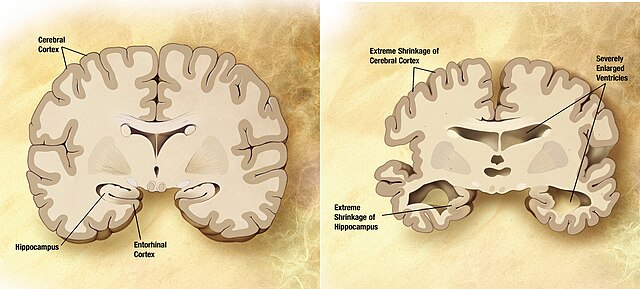 Alzheimer’s disease, a progressive and irreversible neurological disorder, poses significant challenges to individuals, families, and healthcare systems worldwide. Named after the German psychiatrist Alois Alzheimer, who first identified the condition in 1906, Alzheimer’s disease primarily affects the brain, leading to cognitive decline, memory loss, and changes in behavior. As our population ages, the prevalence of Alzheimer’s is on the rise, making it crucial for society to comprehend the complexities of this debilitating condition.
Alzheimer’s disease, a progressive and irreversible neurological disorder, poses significant challenges to individuals, families, and healthcare systems worldwide. Named after the German psychiatrist Alois Alzheimer, who first identified the condition in 1906, Alzheimer’s disease primarily affects the brain, leading to cognitive decline, memory loss, and changes in behavior. As our population ages, the prevalence of Alzheimer’s is on the rise, making it crucial for society to comprehend the complexities of this debilitating condition.
The hallmark of Alzheimer’s disease is the accumulation of abnormal protein deposits in the brain. These deposits, known as beta-amyloid plaques and tau tangles, disrupt communication between nerve cells and trigger inflammation, contributing to the gradual deterioration of brain function. The exact cause of Alzheimer’s remains elusive, but a combination of genetic, environmental, and lifestyle factors is believed to play a role in its development.
One of the key challenges in understanding Alzheimer’s is its insidious onset. The disease often begins with subtle memory lapses and difficulties in concentration, which can be easily dismissed as normal signs of aging. As it progresses, individuals may experience confusion, disorientation, and language problems. Loved ones often notice personality changes and emotional disturbances, further complicating the caregiving process.
Diagnosis of Alzheimer’s disease involves a comprehensive assessment of a person’s medical history, cognitive abilities, and physical health. While there is no definitive test for Alzheimer’s, advanced imaging techniques such as PET scans and MRI can help identify characteristic brain changes. Early diagnosis is crucial as it allows for better management of symptoms and the implementation of interventions that may slow the progression of the disease.
Living with Alzheimer’s presents numerous challenges, both for individuals affected and their caregivers. The emotional toll can be overwhelming, requiring a support system that includes family, friends, and healthcare professionals. As the disease advances, individuals may require assistance with daily activities, and caregivers must navigate the complex landscape of providing care while ensuring their own well-being.
Research into Alzheimer’s disease is a rapidly evolving field, with scientists working tirelessly to unravel its mysteries. While there is currently no cure, various therapeutic approaches aim to alleviate symptoms and enhance the quality of life for those affected. Drug therapies, cognitive stimulation programs, and lifestyle interventions are among the strategies employed to manage Alzheimer’s symptoms.
The impact of Alzheimer’s extends beyond the individual to the broader societal and economic levels. The cost of care, both in terms of healthcare expenses and lost productivity, is substantial. Efforts to raise awareness, promote early detection, and support ongoing research are crucial components of a comprehensive strategy to address the growing burden of Alzheimer’s disease.
In conclusion, understanding Alzheimer’s disease is vital for individuals, families, and society as a whole. The complex interplay of genetic and environmental factors leading to the characteristic brain changes requires a multifaceted approach to diagnosis, care, and research. While a cure remains elusive, advancements in treatment and support strategies offer hope for improved outcomes and a better quality of life for those affected by this devastating condition.
